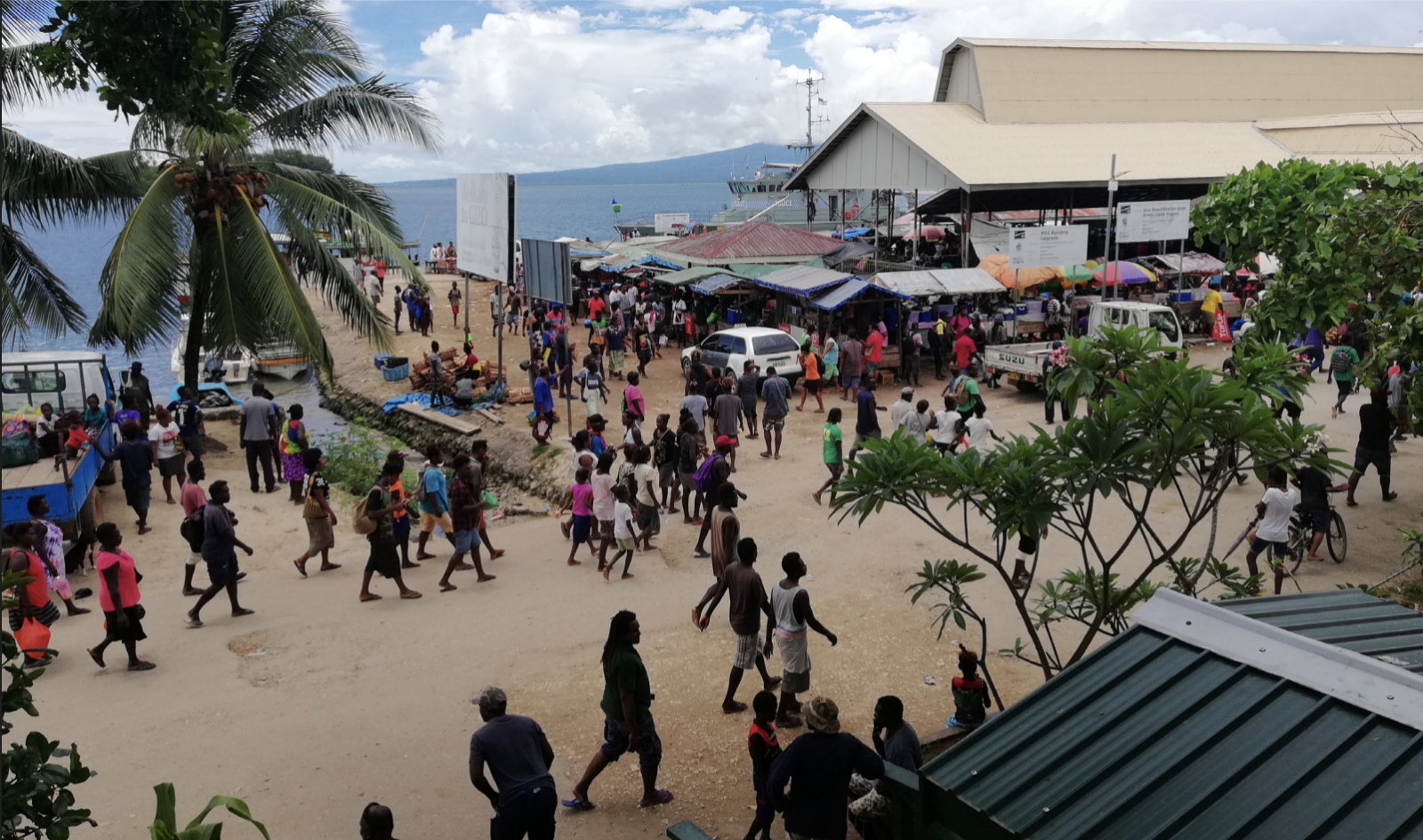
SHARE
The National Democratic Institute (NDI) conducted national public opinion research to understand the main concerns of Solomon Islanders, including their awareness of public policies related to the COVID-19 pandemic and attitudes toward vaccines. The resulting study, which draws on a national survey and focus group discussions conducted throughout the country, shows that the measures taken by the Solomon Islands Government to prevent the spread of COVID-19 are largely seen positively, as they have contributed to keeping the country safe. However, public opinion is sharply divided about accepting the vaccine if available, as Figure 1 shows—widespread rumors continue to drive persistent COVID-19 vaccine hesitancy.
Untitled design (1).png

“While Solomon Islanders acknowledge that government-imposed restrictions—including social distancing, limitations of movement, and closing borders—affected livelihoods and lifestyle, they accept these measures and appreciate that the government did a good job in preventing the spread of COVID-19 in the country. However, there is a need to strengthen information integrity to reduce vaccine hesitancy due to misinformation. The government and its development partners can support efforts to counter misinformation through inclusive, evidence-based messages shared by trusted medical experts and community and religious leaders,” said Ancuta Hansen, NDI Pacific Islands Director.
In contrast with the strong approval of the government’s anti-COVID-19 health measures, there is near-universal agreement that there is a lack of transparency in government when it comes to public funding of pandemic recovery policies, which drives calls for more efficient monitoring, especially in terms of the COVID-19 Economic Stimulus Package (ESP).
The research also shows that most Solomon Islanders believe their access to basic services during the pandemic has been satisfactory—the national government is seen as performing well when it comes to ensuring access to public services such as free healthcare and education, as well as improving key infrastructure, since the pandemic began. However, Solomon Islanders did express concern about the longer-term future of their country, particularly in terms of the need to develop provinces outside the capital. In the focus group discussions, participants reported feeling as though Honiara and the rest of the Capital Territory received unfair advantages in the allocation of economic support, such as the implementation of development projects and other government aid. Participants also found consensus on their concern for the impact of uneven and untransparent development initiatives related to natural resource management on the environment.
NDI’s survey also revealed growing concern about unemployment and the increasing cost of living, which is driving widespread pessimism about the future of the country. Even though a tenuous confidence in government characterized survey and focus group responses, some focus group participants explained that they hesitate to criticize the government’s performance and lack of progress in addressing corruption, especially on social media, for fear of retaliation from public officials or politically connected individuals. Eleven percent of survey respondents say they trust government ministries “a lot” and 37 percent “trust some,” while a large majority do not trust the parliament to act in their best interests.
Corruption is viewed as pervasive and affecting every area of public life, as Figure 2 illustrates. The political elite is seen as manipulating the system and taking advantage of leadership positions to serve their own interests and those who support them.
“Strong institutions, independent monitoring, and civic education are needed to effectively fight corruption. The sense of urgency the public feels around corruption can be harnessed and supported by creating opportunities for citizens to engage with the government and anti-corruption institutions,” added Hansen.
Copy of Copy of Untitled.png

In contrast, civil society organizations are generally trusted for their long-term engagement and respected for their efforts across a range of sectors, particularly in providing assistance to marginalized populations, including children in need, people with disabilities, victims of domestic violence, and at-risk youth. There is a demand for an increased presence of civil society organizations on the ground, more awareness, and more sustainable funding. Additionally, the almost unanimous trust in religious leaders and high confidence in CSOs’ ability to deliver at the grassroots level drive wide support and could be harnessed to consolidate government transparency and accountability.
This research is made possible by the generous support of the American people through the United States Agency for International Development (USAID) to the Consortium for Elections and Political Process Strengthening (CEPPS). The analysis and interpretation herein are those of the authors and do not necessarily reflect the views of USAID or the United States Government. NDI would like to acknowledge the key contributions by Tebbutt Research for fielding and conducting primary analysis for this research.
NDI is a non-profit, non-partisan, non-governmental organization that works in partnership around the world to strengthen and safeguard democratic institutions, processes, norms and values to secure a better quality of life for all. NDI envisions a world where democracy and freedom prevail, with dignity for all. The Institute’s work in the Pacific Islands aims to support inclusive and citizen-centered governance by advancing domestic election monitoring efforts, strengthening civil society, enhancing government transparency and accountability, and raising awareness on barriers to women’s political participation. For more information about this research, please email us at [email protected].


